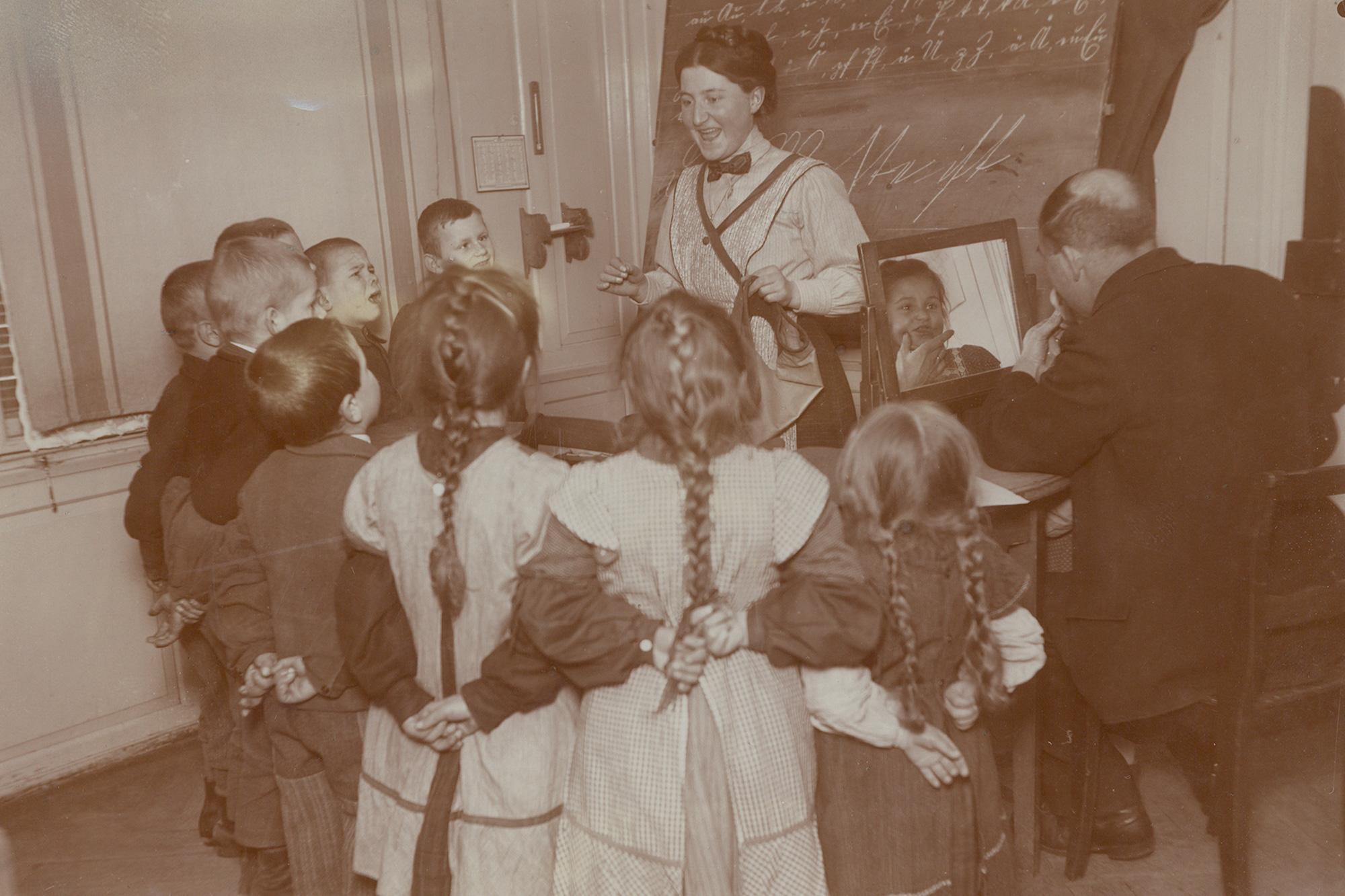Completed project on the history of deaf people in Switzerland

During the 20th century, deaf people experienced discrimination and coercion. The fight against restricted employment options and exclusion from decision processes, assisted by impetus from other countries, brought about an emancipation movement.
For a long time, it was only possible to integrate deaf people into certain defined occupations. A majority of deaf people worked in low-skilled manual jobs, agriculture and housekeeping or in jobs beneath their qualification level even though they had a good vocational education. Many encountered obstacles and experienced exclusion during their educational and professional careers. Because hearing parents were keen to integrate their non-hearing children into mainstream society, the children also experienced coercion in that they were denied the opportunity to learn sign language.
This exclusion and discrimination were overcome partly thanks to an international deaf people’s emancipation movement that also spread to Switzerland: the Swiss deaf movement got off the ground in the late 1970s as a result of dialogue that had begun with deaf people in other countries. Activities focused on obtaining recognition for sign language, greater self-determination for deaf people and better conditions for participating in society.
